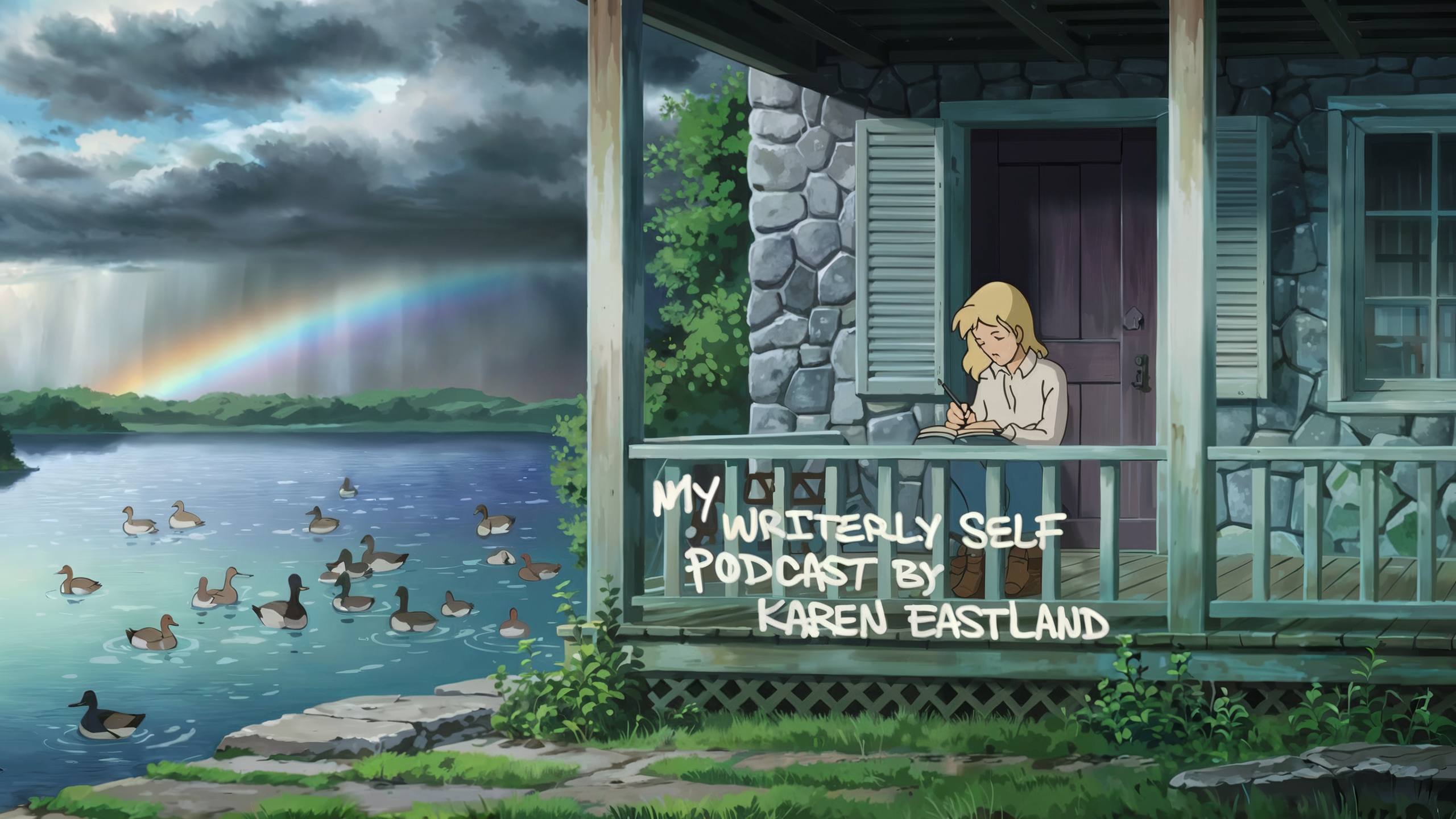Themes and Emotions in Karen Eastland's Creative Process
The themes and emotions revealed in Karen Eastland's diary entries about her creative process are centred around transformation, power dynamics, and finding hope in the face of despair. Eastland uses vivid imagery and emotionally charged language to explore these themes in her writing.
Transformation is a significant theme in Eastland's creative process.
○In "Mud and Chains", the protagonist, Indicus-Resquire, undergoes a significant transformation from a subjugated Dalshaw to a powerful Sin-Eater
○His journey from being imprisoned by both physical chains and the oppressive system of the Bellwethers to embracing the role of a Sin-Eater showcases a profound shift in his identity and purpose.
○This theme of transformation reflects Eastland’s own journey as a writer, as she continuously molds and reshapes her characters and their stories.
Eastland's diary entries also highlight the theme of power dynamics.
○The relationship between the Dalshaw and the Bellwethers in "Mud and Chains" exemplifies the stark contrast between the oppressed and the oppressors.
○Indicus's act of defiance against the Bellwether who attempts to take the child represents a challenge to this established power structure, highlighting the potential for rebellion even in the face of overwhelming odds.
○This exploration of power dynamics reveals Eastland’s interest in examining social structures and the potential for individuals to challenge and subvert them.
Despite the bleak settings and challenging situations she depicts, Eastland's creative process also reveals a persistent search for hope.
○Even in "A Meeting in the Frost," set in a desolate ice world that mirrors Indicus's internal struggles, the meeting with Anshela, the Keylass, brings a glimmer of warmth and connection.
○Anshela's playful wisdom and her reminder to Indicus that he is not alone offer a beacon of hope in the face of the overwhelming despair he carries as a Sin-Eater.
○This theme of hope underscores Eastland’s belief in the power of human connection and resilience, even in the darkest of times.
Eastland's diary entries are characterised by raw emotion, particularly in her descriptions of Indicus's experiences.
●In "Mud and Chains," the descriptions of the mud, the chains, and the oppressive atmosphere of Pentague evoke a palpable sense of suffocating despair.
●However, even in the darkest moments, there is a glimmer of determination and resilience in Indicus's defiance.
●The scene where he chooses to stand in place of the child is charged with raw emotion, highlighting the themes of sacrifice, strength, and the inherent desire for freedom.
●The emotional intensity of these scenes demonstrates Eastland's ability to connect with her characters on a deep level and translate their experiences onto the page in a way that resonates with readers.
Eastland’s creative process, as revealed through her diary entries, is a journey marked by introspection, emotional depth, and a commitment to exploring complex themes in a way that is both engaging and thought-provoking.
